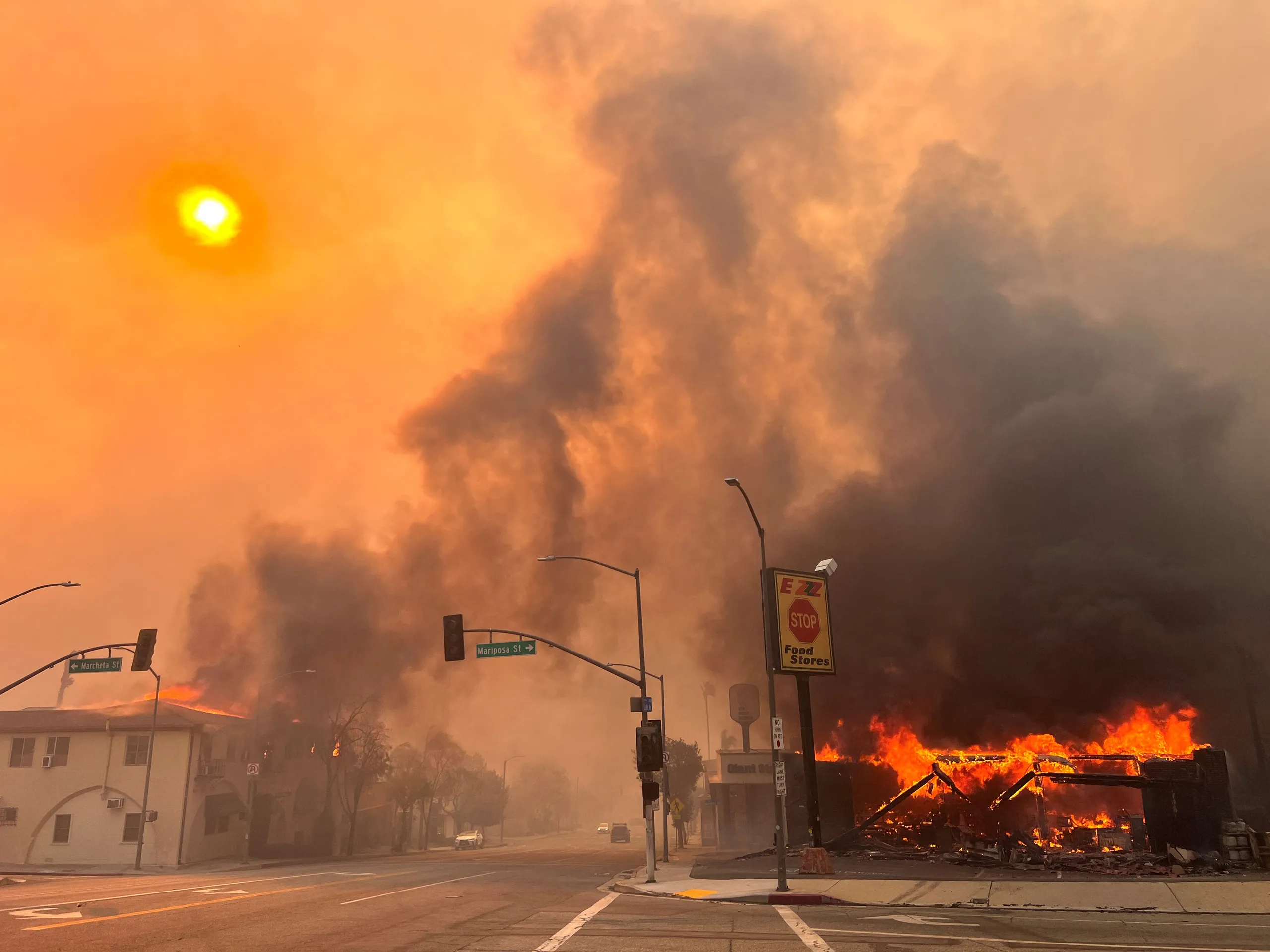Raging California wildfires have wreaked havoc across Los Angeles, with five major fires covering nearly 14,000 acres. The devastation has led to the loss of five lives and forced nearly 180,000 residents to evacuate.
While the immediate destruction of homes and neighbourhoods is evident, a pressing concern now is the health impact of toxic chemicals released by the fires.
Join our WhatsApp ChannelToxic Chemicals in California Wildfire Smoke
Wildfire smoke is not just a mix of visible ash and soot. According to the United States Environmental Protection Agency (EPA), it contains gases like carbon monoxide, hazardous air pollutants, water vapor, and particle pollution. These small solid particles and liquid droplets pose significant health risks.
READ ALSO: Global Wildfires Surge In 2024: A Burning Crisis Fueled By Climate Change
U.S. Health Secretary Xavier Becerra highlighted the severity of the situation, warning that burning homes and businesses release toxins such as cyanide and carbon dioxide. “That air that’s being spewed is no longer just the kind of smoke we used to see from wildfires, where it was natural vegetation that was burning,” he said, emphasising the increased danger from modern wildfires.
Health Effects of Wildfire Smoke
The health impacts of wildfire smoke range from short-term issues like coughing, itchy eyes, and breathing difficulties to severe long-term consequences. The EPA notes that exposure can cause lung inflammation, increased risk of bronchitis, and worsen asthma symptoms. Moreover, prolonged exposure to these toxins may affect cardiovascular health and lung capacity.
Research by the National Institutes of Health suggests that long-term exposure to wildfire smoke can lead to more serious conditions, including heart failure, stroke, heart attacks, and even dementia. Vulnerable groups such as older adults, children, and individuals with pre-existing respiratory or heart conditions are at heightened risk.
How to Protect Yourself against the wild fire smoke
Los Angeles County’s health officer, Dr. Muntu Davis, advises residents to monitor air quality closely. He recommends staying indoors, sealing windows and doors, using air conditioners that do not draw air from outside, and wearing N95 or P100 masks when venturing outdoors.
“Predicting where ash or soot from a fire will travel, or how winds will impact air quality, is difficult, so it’s important for everyone to stay aware of the air quality in your area, make plans, and take action to protect your health and your family’s health,” Dr. Davis said in a statement.
As California grapples with these devastating wildfires, the health risks from toxic chemicals in the smoke cannot be ignored. Residents are urged to take necessary precautions to safeguard their health as efforts to control the fires continue.
Emmanuel Ochayi is a journalist. He is a graduate of the University of Lagos, School of first choice and the nations pride. Emmanuel is keen on exploring writing angles in different areas, including Business, climate change, politics, Education, and others.


















